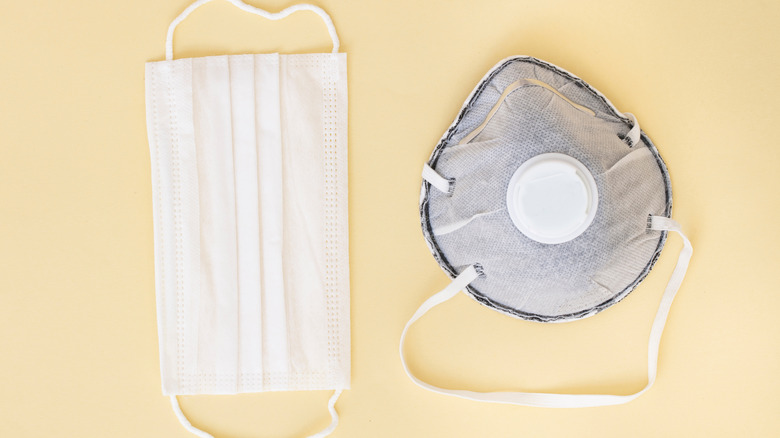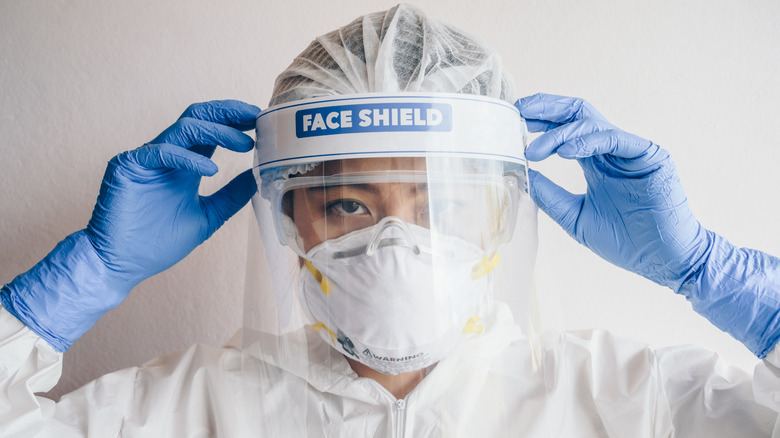Which Mask Is The Most Effective In Protecting You Against COVID-19?
More than two years into the pandemic, health experts continue to study which types of masks offer us the greatest protection against COVID-19. At different stages of the pandemic, the research provided us with more detailed information about the efficacy of masking, allowing government officials to issue more accurate guidelines for choosing a mask.
One study published in February 2022 in the Morbidity and Mortality Weekly Report examined the effectiveness of N95/KN95 respirators, surgical masks, and cloth masks in comparison to wearing no facial covering at all. In 534 participants, it was found that both respirators and surgical masks significantly decreased the likelihood of contracting COVID-19. Respirators lowered the chances for infection by as much as 83%, while surgical masks reduced the risk by 66% (via U.S. Centers for Disease Control and Prevention). Cloth masks proved to be the least effective, lowering the odds by 56%.
While the above study findings were published only a few months ago, the body of research continues to grow and evolve. Now, a new study published this month in the Journal of Infectious Diseases suggests that surgical masks may not be as effective in protecting against COVID-19 as previously thought.
The importance of fit and filtration
Researchers looked at the correlation between mask fit and protection against air-borne COVID-19 virus particles when worn by healthcare workers indoors (per Healthline). The study team determined that protection was, in fact, largely influenced by mask fit. "The fact that our well fitted (passed fit-test) N95 provided the strongest protection is a good demonstration that the seal (how well it fits) is often the most important factor in mask protection," study co-author Dr. Shane Landry told Healthline. Conversely, because surgical masks are not fitted to the face in the way N95 masks are, Landry explained that viral particles were able to make their way through.
As reported by Healthline, along with the added protection of surgical gowns, gloves, and face shields, study findings showed that the use of HEPA filtration and wearing fitted N95 masks further boosted protection for healthcare workers — nearly eliminating chances for infection.
Although surgical masks were previously thought to provide adequate protection, professor of Medicine at the University of California San Francisco Dr. Monica Gandhi tells Healthline, "The evidence seems increasingly clear that cloth and surgical masks are not effective in preventing viral transmission." While masking of any kind still provides more protection than going mask-free, wearing a well-fitted, filtered N95 or KN95 mask is most effective at protecting those who may be particularly susceptible to infection, such as those who are immunocompromised.


